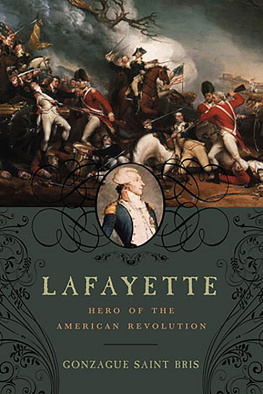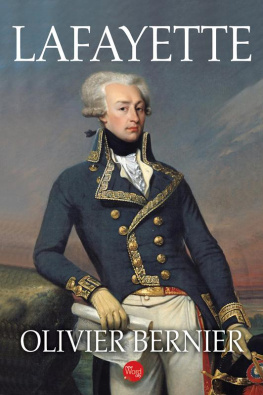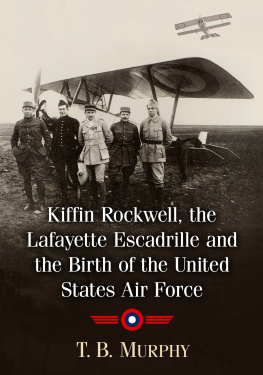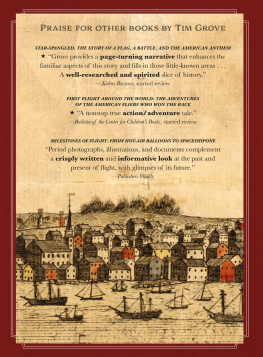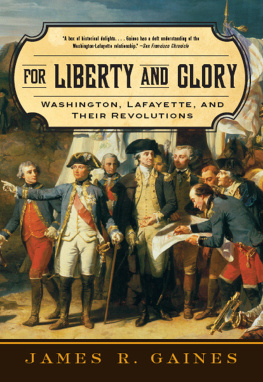LAFAYETTE
LAFAYETTE
HERO OF THE
AMERICAN REVOLUTION
GONZAGUE SAINT BRIS
Translated by George Holoch

PEGASUS BOOKS
NEW YORK
LAFAYETTE
Contents
I pity anyone who has not given half his heart to Lafayette.
JOSEPH DELTEIL
R ECENT FRANCO-AMERICAN RELATIONS HAVE BEEN afflicted with mutual misunderstanding. As happens whenever warm feelings are succeeded by a dawning sense of estrangement, the gap created by differences of opinion, magnified by unequal status and disparity of circumstances, has appeared unbridgeable. At the time of the invasion of Iraq, Americans considered the French cowardly and ungrateful, while the French saw the Americans as warmongers heading in the wrong direction and destroying everything in their path.
Everything was different in the century of the Enlightenment, when Lafayette embodied the highest qualities: the spirit of perfection allied to the spirit of progress, real courage and passion in harmony with the sincere desire to promote both political and philosophical progress. Both sides of the ocean experienced the finest version of our exchange: the insurgents displayed the bravery of pioneers in building a new world, while the kingdom of France was represented by the boldness and spirit of a young libertarian marquis notably lacking in caste prejudice and eager to do battle for the shared ideal proclaimed in Philadelphia, the ideal of brotherly love. It was the happy time of the Hero of Two Worlds, the go-between, when America looked toward Europe, when freedom and enterprise came together, under a combination of influences, in the formulation of an unprecedented model of democracy that for the first time proclaimed as a goal the pursuit of happiness. Since then, the old friendship has been shaken and the two-hundred-year alliance deeply troubled. While the two world wars had brought the countries together in shared sacrifice, recent events in the Middle East seemed for a time to threaten a definitive end to the alliance. But the realization seems to have been growing that a divorce would be futile between cousins estranged by the turmoil of immediate events or brothers temporarily divided by different interpretations of history. We have much to contribute to each other: lessons from a society founded on diversity and free enterprise where everyone has a chance to succeed, and those from an old nation that has remained young because it has never stopped believing in the reality and the future of its dream of liberty, equality, fraternity. With such powerful common and deeply intertwined roots, France and America are congenitally united.
Because of the incredible breadth of his career, Lafayette still embodies the spirit of freedom. His reputation is secure in the United States: forty cities, seven counties, and even a mountain bear his name. And in France, ever since the celebration of the bicentenary of the Revolution, he has enjoyed increasing favor in public opinion.
In a 2006 survey, he was rated favorably by 57 percent of respondents. In answer to the question: Among the figures of the period of the French Revolution, which are those you view most favorably? Lafayette came ahead of all the heroes of the period, even widely distancing Napoleon Bonaparte. A later survey confirmed his privileged position. Not only did Lafayette remain in first place, but he left far behind him, in a veritable rout, Danton and Saint-Just at 21 percent, followed by Mirabeau at 17, Louis XVI at 15, and Marat dead last at 8. Moreover, Lafayette drew only 6 percent of negative opinions, whereas Danton and Robespierre had twice as many enemies as friends.
Indeed, the principles of the Revolution appear to be the founding myth of national consciousness70 percent of the French consider it a positive event in the long runwhile the violence that ensued has been deeply rejected by our contemporaries. The leaders of the Committee of Public Safety are no longer admired. The very idea of terror as a means of government traumatized the French people. Lafayette is admired among all age groups and all political tendencies as much for what he excludes as for what he represents. In him, the French salute the hero of American independence, the champion of the rights of man, and a symbol of national union and freedom, along with an enemy of violence and intolerance. In the survey, the French condemned the shedding of blood; the national consensus has formed around the year 1 of the Revolution and not the excesses of the Jacobin period. At the time of the 1989 celebrations, domestic opinion came into agreement with international opinion, which had always taken 1789, not 1793, as the reference point for the French Revolution.
Two hundred fifty years after his birth is an appropriate occasion to present Lafayette as he was and to display the brilliance of his modernity, because he was in every way a man ahead of his time. It is not accidental that he enjoys such a favorable opinion today; it echoes the prodigious popularity and extraordinary acclaim he experienced in his lifetime. He was a champion of the rights of man who stood up for Indians and blacks in America and Protestants and Jews in France, and also fought for the Italians, the Irish, the Poles, the Belgians, and the Dutch. With the awakening of the nations, he showed his devotion to the idea of Europe. He anticipated a new political prototype, a man who synthesizes. Neither an extreme leftist nor a benighted conservative, he was an open-minded liberal and a dynamic centrist. The precocity he showed as major-general in the army of the United States at the age of nineteen marked his entire career.
Like a figure out of legend, Lafayette was a hero from the age of seven to seventy-seven; his celebrity was matched by the length of his active career. A media figure before the media existed, Lafayette handled crowds like a great communicator. For his entire life, he preferred popularity to power. He chose what he called the delicious sensation of the smile of the multitude. This aspect of his personality has not always been understood or explained, and yet he constantly acted as a public relations agent for the cause of freedom. My aim is to do justice to this great man whose role has unaccountably been glossed over by history. Why has Lafayette been generally misunderstood, widely underestimated, and perpetually criticized? This man between two shores, two regimes, two worlds, was an extraordinary bridging figure whose value has been lost sight of, even though the great figures of his time eagerly testified to the major importance of his activities. He was of the generation that gave birth to a new world. When Voltaire presented Benjamin Franklin and John Adams to the Acadmie Franaise, he called them the precursors in Europe of the Star of Liberty rising in America. It is fitting that the voice of a woman, Mme de Stal, was raised in defense of the hero of two worlds. When he was taxed with navet, she declared: If this is how you incur the reproach of foolishness, may our men of intelligence for once deserve it!
Surrounding the subject of this biography, I have attempted to paint the multicolored portraits of a galaxy of figures whose unique and fascinating personalities animated the two revolutions. An astonishing century seemed to be coming into being between the eighteenth and nineteenth, the century of Lafayette and his contemporaries in all their vivid contrasts. In this connection, it is worth considering Benjamin Franklins description of Louis XVI: He is the man I have known whose appearance merits Shakespeares expression the milk of human kindness. In an unparalleled cast of historic figures, one can glimpse the paradoxes lying beneath the polished surface of history. While the principal figure is fascinating, I have been unable, as I have retraced his lifefive kings, two revolutions, two republics, and an empireto shake off the impression that I was witnessing the extraordinary spectacle of an age.
Next page
